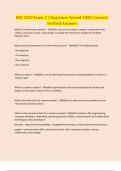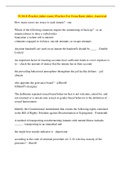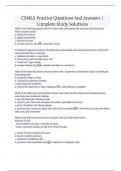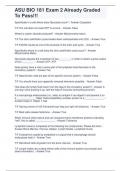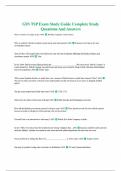Eysenck's theory of the criminal personality
General personality theory
Hans Eysenck was an important figure in personality and intelligence research during the 1950s and 60s.
Eysenck (1947) proposed that behaviour could be represented along two dimensions: introversion/
extraversion (E) and neuroticism/stability (N). The two dimensions combine to form a variety of personality
characteristics or traits. Eysenck later added a third dimension - psychoticism (P).
Biological basis
According to Eysenck, our personality traits are biological in origin and come about through the type of
nervous system we inherit. Thus, all personality types – including the criminal personality type - have an
innate, biological basis. Extraverts have an underactive nervous system which means they constantly seek
excitement, stimulation and are likely to engage in risk-taking behaviours. They also tend not to condition
easily and do not learn from their mistakes. Neurotic individuals tend to be nervous, jumpy, and over-
anxious, and their general instability means their behaviour is often difficult to predict
The criminal personality
The criminal personality type is neurotic-extravert - a combination of all the characteristics and behaviours
described above for both neuroticism and extraversion. In addition, Eysenck suggested that the typical
offender will also score highly on measures of psychoticism - a personality type that is characterised as cold,
unemotional, and prone to aggression.
The role of socialisation
In Eysenck' theory, personality is linked to criminal behaviour via socialisation processes. Eysenck saw
criminal behaviour as developmentally immature in that it is selfish and concerned with immediate
gratification - they are impatient and cannot wait for things.
The process of socialisation is one in which children are taught to become more able to delay gratification
and more socially oriented. Eysenck believed that people with high E and N scores had nervous systems that
made them difficult to condition. As a result, they would not learn easily to respond to antisocial impulses
with anxiety. Consequently, they would be more likely to act antisocially in situations where the opportunity
presented itself.
Measuring the criminal personality
The notion that personality can be measured is one that is central to Eysenck's theory. He developed the
Eysenck Personality Inventory (EPI), a form of psychological test which locates respondents along the E and
N dimensions to determine their personality type. A later scale was introduced that is used to measure
psychoticism
General personality theory
Hans Eysenck was an important figure in personality and intelligence research during the 1950s and 60s.
Eysenck (1947) proposed that behaviour could be represented along two dimensions: introversion/
extraversion (E) and neuroticism/stability (N). The two dimensions combine to form a variety of personality
characteristics or traits. Eysenck later added a third dimension - psychoticism (P).
Biological basis
According to Eysenck, our personality traits are biological in origin and come about through the type of
nervous system we inherit. Thus, all personality types – including the criminal personality type - have an
innate, biological basis. Extraverts have an underactive nervous system which means they constantly seek
excitement, stimulation and are likely to engage in risk-taking behaviours. They also tend not to condition
easily and do not learn from their mistakes. Neurotic individuals tend to be nervous, jumpy, and over-
anxious, and their general instability means their behaviour is often difficult to predict
The criminal personality
The criminal personality type is neurotic-extravert - a combination of all the characteristics and behaviours
described above for both neuroticism and extraversion. In addition, Eysenck suggested that the typical
offender will also score highly on measures of psychoticism - a personality type that is characterised as cold,
unemotional, and prone to aggression.
The role of socialisation
In Eysenck' theory, personality is linked to criminal behaviour via socialisation processes. Eysenck saw
criminal behaviour as developmentally immature in that it is selfish and concerned with immediate
gratification - they are impatient and cannot wait for things.
The process of socialisation is one in which children are taught to become more able to delay gratification
and more socially oriented. Eysenck believed that people with high E and N scores had nervous systems that
made them difficult to condition. As a result, they would not learn easily to respond to antisocial impulses
with anxiety. Consequently, they would be more likely to act antisocially in situations where the opportunity
presented itself.
Measuring the criminal personality
The notion that personality can be measured is one that is central to Eysenck's theory. He developed the
Eysenck Personality Inventory (EPI), a form of psychological test which locates respondents along the E and
N dimensions to determine their personality type. A later scale was introduced that is used to measure
psychoticism





